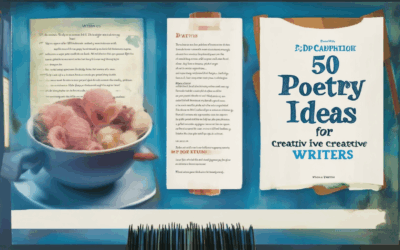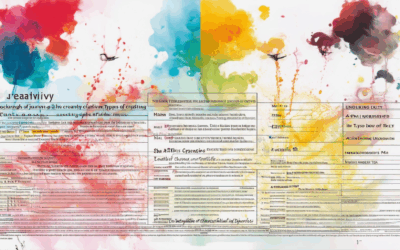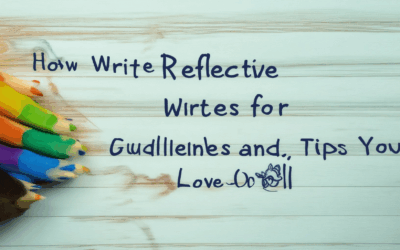Reflective writing is a powerful tool for students to explore their thoughts, emotions, and experiences, offering a deeper understanding of themselves and their world. Whether you’re a high school student working on a journal entry or a college student crafting a personal essay, finding the right reflective writing ideas can transform your writing process. This guide delves into the best practices, prompts, and strategies to help you master reflective writing, ensuring your work resonates on a personal level while meeting academic standards. From understanding the 5 R’s of reflective writing to discovering effective prompts and tips for success, this article equips you with everything you need to excel in reflective writing. Dive in and unlock your creative potential today!
Key Takeaways
- Harness the Power of Personal Stories: Reflective writing thrives on personal narratives that resonate deeply, offering unique insights into individual growth and understanding.
- Choose Topics That Matter: Select subjects that align with your passions and allow for profound self-examination, ensuring your work stands out.
- Craft Compelling Openings: Begin with thought-provoking questions or meaningful quotes to engage readers and set the tone for your reflections.
- Combine Personal Experiences with Broader Themes: This approach enriches your analysis, connecting your story to universal concepts.
- Explore Diverse Reflection Points: Delve into areas like personal growth, identity, moral dilemmas, and more to uncover layers of meaning.
- Leverage Creativity: Use vivid descriptions and metaphors to bring your reflections to life, making your writing memorable.
- Use Aristotle’s Wisdom: A quote like “We are what we repeatedly do” can inspire a compelling opening for your paper.
- Enhance Your Process with Resources: Platforms like Silken Drum support your creative journey, fostering a community where insights are shared and valued.

The 5 R’s of Reflective Writing
Reflective writing is a powerful tool for introspection and personal growth. It allows writers to explore their thoughts, emotions, and experiences in a meaningful way. Below are the five key components, known as the 5 R’s, that define reflective writing:
- Recognition : This is the foundation of reflective writing. It involves acknowledging and naming your emotions, thoughts, and experiences. By recognizing your internal state, you create a starting point for deeper exploration.
- Response : Once you’ve recognized your feelings, the next step is to respond to them. This could mean describing how you felt or what you did in response to a particular situation. It’s about connecting your emotions to your actions.
- Reflection : Reflection takes your recognition and response a step further. It’s about analyzing your thoughts and experiences to understand their meaning and impact. This step often involves asking questions like, “What did I learn from this?” or “How has this shaped me?”
- Reciprocity : Reciprocity in reflective writing means sharing your thoughts and feelings with others. It’s about engaging in dialogue or discussion, whether that’s with yourself in a journal or with others in a group setting. This reciprocal exchange can deepen your understanding and provide new perspectives.
- Reimagining : Finally, reimagining involves envisioning how your reflections can influence your future actions and decisions. It’s about applying what you’ve learned to create a more intentional and mindful life.
By practicing these five R’s, writers can unlock greater self-awareness and create works that resonate on a deeper level.
Reflective Writing Prompts
Reflective writing encourages introspection and self-awareness, helping individuals explore their thoughts, emotions, and experiences. Below are prompts designed to inspire deep reflection and meaningful expression:
-
Exploring Personal Growth
- Write about a moment when you felt a significant change in yourself.
- Describe how a past experience shaped your current perspective on life.
- Reflect on a skill you’ve developed recently and its impact on your life.
-
Mindfulness and Gratitude
- Write down three things you’re grateful for and why they matter to you.
- Describe a situation where you felt completely present in the moment.
- Reflect on a recent challenge and what you learned from it.
-
Creativity and Expression
- Write a poem or short story about a place that represents your inner world.
- Describe a dream you had and its possible meaning according to your life situation.
- Reflect on a creative project and how it helped you express your identity.
-
Relationships and Connections
- Write about a meaningful conversation you had with someone and what it taught you.
- Describe a time when you felt disconnected from someone important and how you reconnecte
- Reflect on a relationship that changed your life and its lasting impact.
-
Lifelong Learning
- Write about a book or teacher that influenced your thinking and why.
- Describe a learning experience that challenged your beliefs and how you grew from it.
- Reflect on a skill you wish to develop and why it matters to your personal growth.

Reflective Writing Examples
Reflective writing is a form of creative expression that invites introspection, self-discovery, and personal growth. It often involves exploring emotions, experiences, and ideas to gain deeper insight into oneself and the world around. Below are some examples of reflective writing, along with tips on how to approach it effectively.
Categories of Reflective Writing
Reflective writing can take many forms, from personal journals to poetic compositions. Here are some common types:
1. Personal Journals
- Write about your daily thoughts, feelings, and experiences. Journaling helps track personal growth and allows for self-reflection over time.
- Example: “Today was a challenging day at work. I felt overwhelmed, but I reminded myself of my strengths and goals.”
2. Poetry
- Use poetry to express complex emotions or abstract concepts. Poets like Rainer Maria Rilke and Mary Oliver have masterfully explored the human condition through their words.
- Example: “In the quiet of the night, I hear my heart whisper truths I often ignore.”
3. Memoirs and Autobiographies
- Share your life story or a significant portion of it to inspire others or document your journey.
- Example: “My journey from a small town to the big city taught me the importance of adaptability and resilience.”
4. Creative Nonfiction
- Blend storytelling with factual details to convey a meaningful experience or lesson.
- Example: “A walk in the park reminded me of the beauty found in simple things, even in tough times.”
5. Devotional or Spiritual Writing
- Reflect on spiritual or existential themes to connect with your inner self or higher purpose.
- Example: “Practicing mindfulness has shown me that peace lies in the present moment, not in the past or future.”
Tips for Effective Reflective Writing
- Choose a Prompt : Start with a specific question or theme, like “What did I learn from this experience?” or “How has COVID-19 changed my perspective?”
- Be Honest and Vulnerable : Reflective writing thrives on authenticity. Allow yourself to feel and express emotions without judgment.
- Capture Moments : Reflective writing doesn’t have to be grand. Sometimes, a single sentence or image can spark profound insight.
- Explore Deep Topics : Reflect on questions like “Who am I?” or “What is my purpose?” These can lead to transformative discoveries.
- Keep a Record : Over time, your reflections can become a valuable archive of your personal and intellectual growth.
By embracing reflective writing, you unlock a powerful tool for self-awareness and personal development. Whether through poetry, prose, or journaling, the act of reflecting enriches your life and offers insights that may surprise and inspire you.
Silken Drum encourages you to explore reflective writing and share your own experiences. Visit our writing resources to find inspiration and tools for your journey.

The Best Topic for Reflection Paper
Reflecting on personal experiences is a powerful way to gain insight and grow. A great topic for a reflection paper is one that allows you to explore a significant life event or experience that shaped your understanding of yourself and the world around you. Here are some suggestions:
- A Life-Changing Experience : Reflect on a pivotal moment in your life, such as moving to a new country, overcoming a major challenge, or learning a vital lesson that altered your perspective.
- Personal Growth Through Struggle : Choose a time when you faced adversity and how you navigated it, highlighting your resilience and growth.
- Identity Exploration : Explore how certain events or realizations contributed to your sense of self and identity.
- Purpose and Meaning : Reflect on moments when you felt a strong sense of purpose or discovered your calling, tying it to broader existential questions.
For the best outcome, combine a specific, personal experience with a broader thematic element. This approach allows for rich, layered analysis and connects your narrative to universal concepts. Consider how platforms like Silken Drum can support your creative expression and reflection journey, enhancing your writing process and sharing your insights with others.
Reflective Essay Topics
- Personal Growth and Development
- Identity Exploration
- Moral and Ethical Dilemmas
- Family Dynamics and Relationships
- Philosophical Questions
- Creative Process and Artistic Journey
- Social Justice Issues
- Spiritual or Existential Themes
- Memoir-Style Reflection
- Career Choices and Life Decisions

A Thoughtful Opening Sentence for Your Reflection Paper
Reflecting on life’s journey often begins with a moment of introspection. Consider this:
“We are what we repeatedly do. Excellence, then, is not an act, but a habit.” — Aristotle
As you embark on crafting your reflection paper, it’s essential to capture the essence of your journey thus far. Start with a thought-provoking question or a meaningful quote to engage your readers and set the tone for your reflections. Whether you’re exploring personal growth, overcoming challenges, or learning from past experiences, a compelling opening can make your paper stand out.
Silken Drum encourages writers to share their unique perspectives and foster meaningful connections through storytelling. Explore our platform to discover inspiration and join a community dedicated to creative expression and introspection.




0 Comments